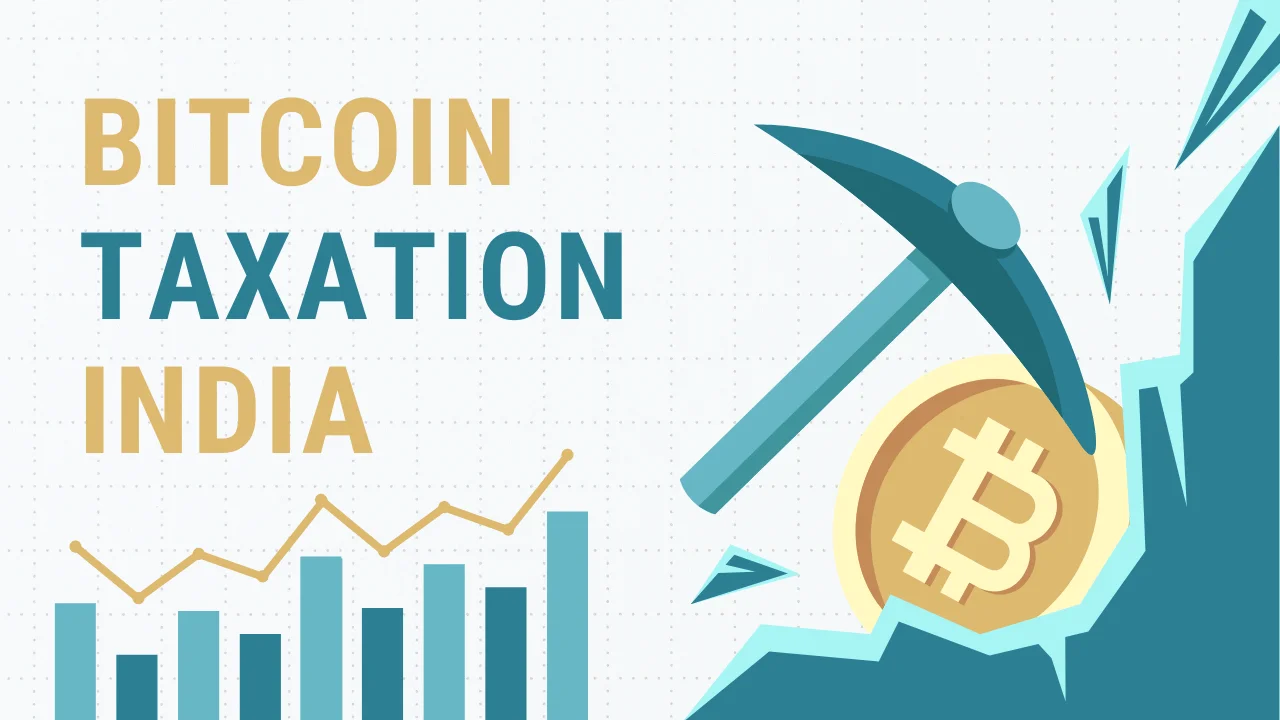Bitcoin Taxation India, with its decentralized nature and potential for high returns, has garnered significant attention from investors worldwide. Its rise as a prominent player in the digital finance sector hasn’t escaped the notice of India, a country marked by a sizable population and a growing tech-savvy demographic. However, amidst the excitement surrounding cryptocurrency, there looms a significant concern for traders and investors alike—the perplexing realm of Indian taxation, specifically concerning Bitcoin Taxation in India. Understanding and navigating this intricate landscape is crucial for those involved in the cryptocurrency market. Hence, this guide aims to demystify the complexities surrounding Bitcoin taxation in India, offering clarity and confidence to individuals treading this path.
Understanding Bitcoin Taxation in India
The advent of Bitcoin and other cryptocurrencies has opened up whole new vistas for investment, growth, and innovation in the financial sector. In an effort to better understand how to tax cryptocurrencies, the Indian government has drafted regulations to bring these digital assets into line with the country’s official financial system. Before we go further into the topic, this section explains what Bitcoin taxes in India include and who it affects.
Crypto Taxation Rules India

New Era of Taxation for Digital Assets
Bitcoin and other virtual digital assets are subject to taxation under a new framework put forward by the Indian government. A major step towards acknowledging and incorporating cryptocurrencies into the national economic fabric has been signalled by this move. It is clear that the government intends to establish a strict regulatory framework for digital assets, as the taxation rules cover a broad range of transactions, from spending and trading to mining and airdrops.
Deciphering the 30% Tax Bracket
The 30% tax on cryptocurrency transaction profits is the meat and potatoes of the taxation framework. This fixed rate is applicable to a wide range of transactions, including buying and selling cryptocurrencies and cryptocurrency exchanges. Clearly, the goal is to increase openness and responsibility in the rapidly growing field of virtual digital assets.
1% TDS Mechanism
Crypto asset transfers are subject to a 1% Tax Deducted at Source (TDS), a crucial component of the tax regulations. Keeping tabs on the movement of funds and making sure everyone pays their fair share are both achieved by this measure. The fact that the TDS applies to both sides of a transaction shows how the government is trying to get a good look at all the crypto investments and activities.
Exemptions and Clarifications
Some things still manage to evade taxes, no matter how strict the regulations are. One small respite from the onerous tax regime is the fact that cryptocurrency transfers between individual wallets are not subject to taxation. The government’s careful analysis of the cryptocurrency ecosystem is demonstrated by this exemption, which differentiates between taxable transactions and the management of personal assets.
Mining and Staking
Crypto enthusiasts can explore exciting opportunities to engage with the blockchain ecosystem through mining and staking. But the new tax rules also apply to these things, and the 30% tax rate is applied to mining and staking profits. With this addition, the taxation framework aspires to encompass all aspects of cryptocurrency engagement, reflecting its comprehensive scope.
Compliance and Enforcement
The matter of compliance and enforcement is further brought to light by the introduction of strict cryptocurrency tax regulations in India. To avoid fines, investors and traders must proceed cautiously through this environment. The government’s dedication to regulating and overseeing the integration of cryptocurrencies into the mainstream financial system is underscored by the emphasis on compliance.
Impact of Cryptocurrency Taxation on Indian Markets

Market dynamics and investor sentiment have been significantly affected by India’s introduction of a structured taxation framework for cryptocurrencies. The impacts of taxes are starting to show up in various areas as the country works its way through crypto regulation’s early stages.
Influence on Investor Behavior
A 30% tax on cryptocurrency profits has changed investor behaviour and made people rethink their digital asset investment strategies. To reduce their tax burden, investors have become more conservative and have begun to favour long-term investments over short-term trades, thanks to the high tax rate.
Market Volatility and Trading Volumes
Market volatility and trading volumes have been affected by the introduction of tax regulations. More specifically, the 1% TDS has raised transaction costs, which might reduce trade frequency and impact liquidity. On the other hand, it could lead to market stability by promoting rational investment choices and reducing speculative trading.
Adoption and Integration of Cryptocurrencies
The adoption and legitimization of cryptocurrencies in India have been aided by the clear tax guidelines, which initially caused some concern. The government has given digital assets its silent approval by establishing a framework for taxes, which opens the door to deeper integration into the financial system.
Tax Planning and Compliance Challenges
When it comes to tax planning, cryptocurrency investors face new obstacles and opportunities brought about by the new tax regime. To successfully navigate crypto taxes, one must be well-versed in the relevant laws and regulations and maintain exacting records to guarantee compliance and maximise tax benefits.
Strategic Record-Keeping for Tax Purposes
The importance of keeping meticulous records of transactions has grown in relation to cryptocurrency taxes. In order to precisely determine their tax obligations, investors need to record the time, money, and type of each transaction. Not only does this methodical approach help with compliance, but it also makes it easier to plan strategically to minimise tax obligations.
Utilizing Losses to Offset Tax Liabilities
Tax planning strategies often include offsetting gains with losses. Although there are a lot of restrictions, one positive aspect is that losses from cryptocurrency transactions can be written off against other taxes. The significance of thorough financial management in the cryptocurrency industry is highlighted by this strategy.
Seeking Professional Tax Advice
The intricacies and subtleties of cryptocurrency taxes have made it imperative for numerous investors to seek expert guidance. To successfully navigate the tax landscape, optimise financial outcomes, and ensure compliance, it is helpful to consult with tax experts who have experience with digital assets.
Adapting to Regulatory Changes
It is essential for investors to stay updated on the latest tax laws and amendments, as the cryptocurrency market is constantly evolving in response to regulatory changes. Maintaining compliance and taking advantage of new opportunities within the legal framework can be achieved through proactive adaptation to these changes.
Frequently Asked Questions
Do I need to pay tax on Bitcoin if I don’t sell it?
No, you won’t owe any taxes on your Bitcoin holdings if you don’t sell them. Gains from sales or exchanges are subject to taxation.
How do I calculate my Bitcoin taxes in India?
To figure out how much money you owe in taxes, add up all of the gains or losses from your Bitcoin transactions, multiply that number by 30%, and then subtract or add back any deductions or offsets that apply.
Can I offset my crypto losses against other income?
No, at this time, you can only use the proceeds from the sale of other virtual digital assets to offset cryptocurrency losses; you can’t use them to offset any other forms of income.
Is transferring Bitcoin between my own wallets taxable?
Because it does not constitute a sale or generate any profit, transferring Bitcoin between personal wallets is exempt from taxes.
Are there any exemptions to the 1% TDS rule?
With the exception of transfers between personal wallets, which do not involve sales, the 1% TDS is generally applied to the transfer of crypto assets.
Also Read: Bitcoin Investment India [2024]
Conclusion
In the realm of cryptocurrency, particularly concerning Bitcoin Taxation India, recent developments signify a significant stride in the country’s journey towards regulating digital assets. This comprehensive tax framework not only acknowledges the presence of Bitcoin and its counterparts but also establishes a structured approach to taxation, aligning with broader efforts to bring transparency and accountability to the sector. For investors and traders navigating this evolving landscape, staying informed about the dynamic tax regulations becomes paramount. It’s through this understanding and compliance that the cryptocurrency market can flourish, fostering an environment conducive to sustained growth and development.

Timothy Jensen is an expert writer who specializes in the world of cryptocurrencies, including blockchain technology and Bitcoin. He has a passion for explaining complex topics in an easy-to-understand way. Timothy’s work aims to demystify the digital currency landscape for his readers.

